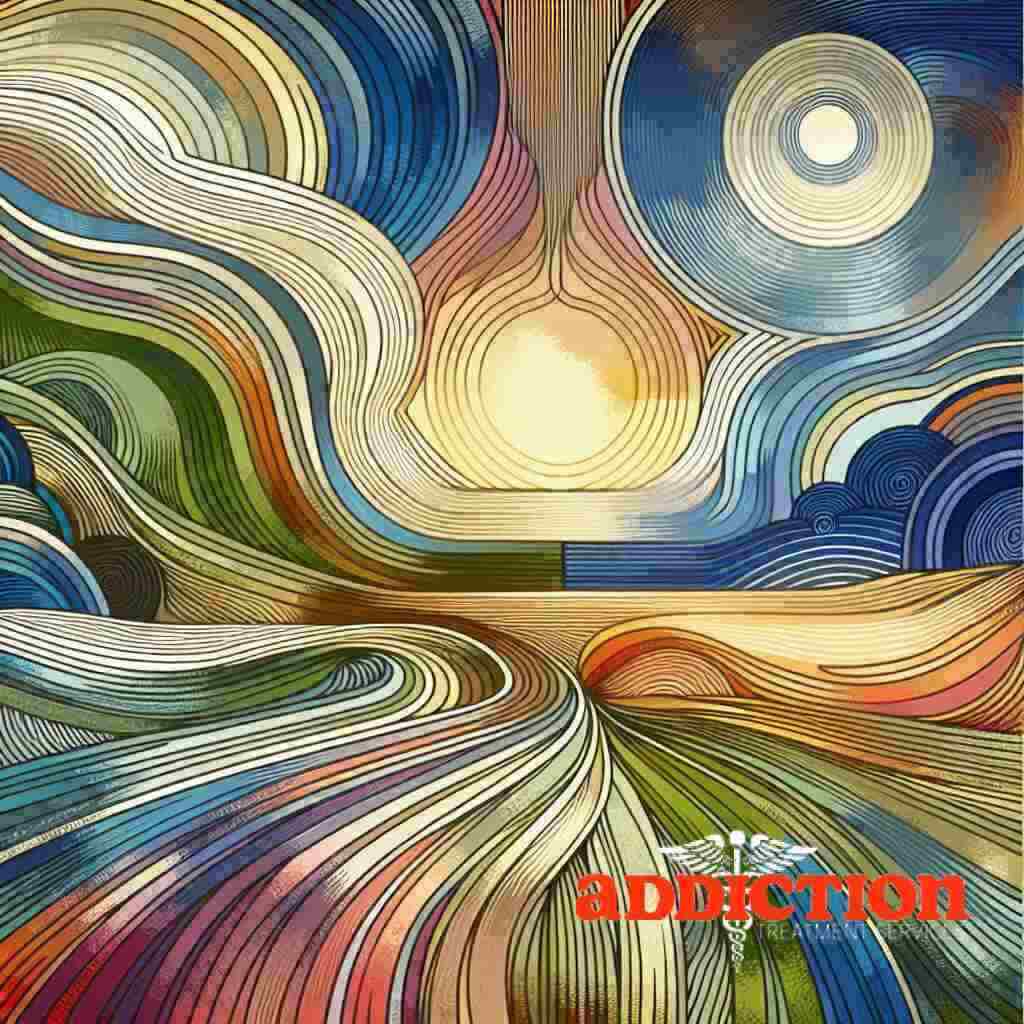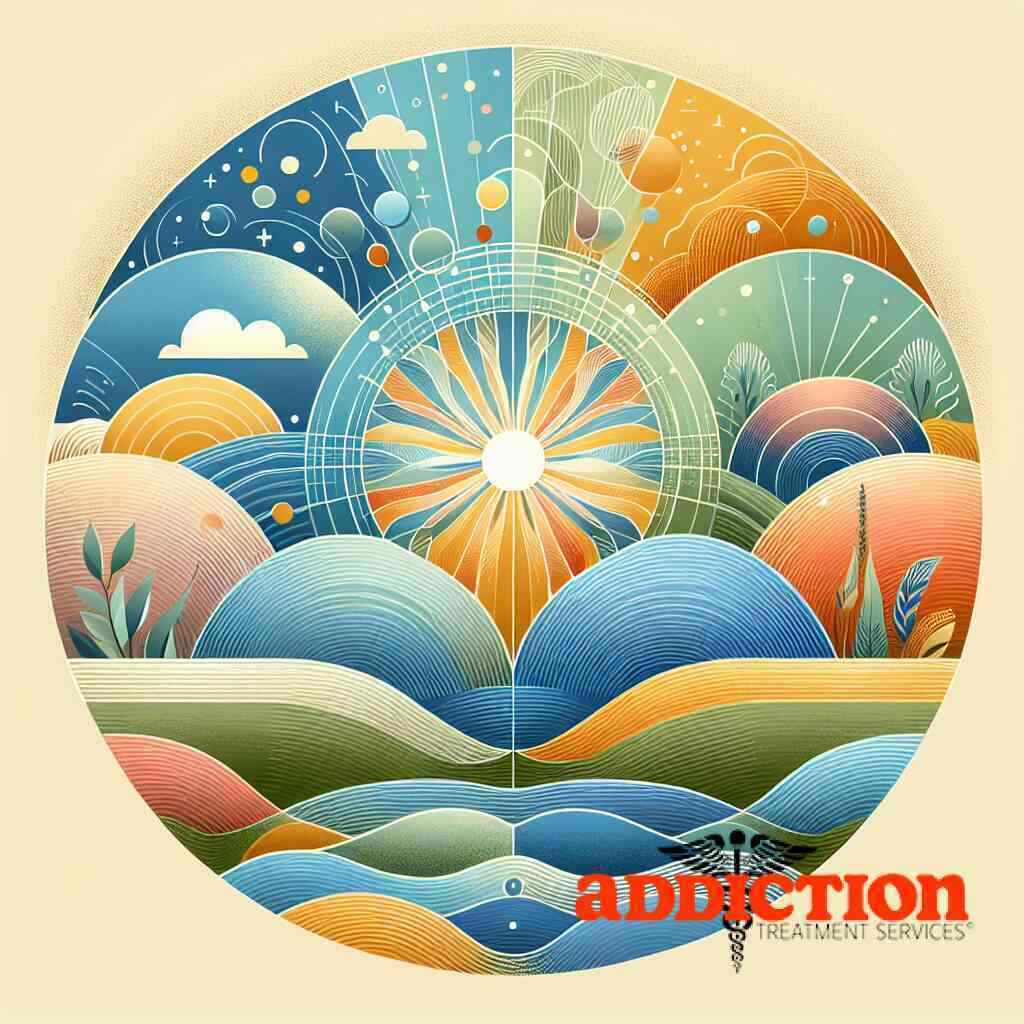 Posted On: 10/03/2024
Posted On: 10/03/2024Understanding Dual Diagnosis
What Is Dual Diagnosis
Dual diagnosis, often referred to as co-occurring disorders, involves the simultaneous presence of a mental health disorder and substance use disorder. This intricate relationship requires specialized treatment to address both aspects effectively. Individuals with dual diagnoses face the compounded challenges of managing mental illness and substance abuse, which often intertwine, exacerbating each other. Thus, a comprehensive understanding of dual diagnosis is essential for successful recovery.
The complexity of dual diagnosis necessitates integrated treatment approaches that cater to both mental health and addiction. Treatment centers emphasize the importance of identifying underlying mental health conditions to enhance recovery outcomes. Professionals recognize that ignoring one aspect of dual diagnosis can lead to incomplete healing, resulting in potential relapses. This holistic approach underlines the need for tailored mental health services within addiction treatment.
Common Co-occurring Disorders
Individuals with dual diagnosis often struggle with specific combinations of disorders. Common co-occurring disorders include depression and alcoholism or anxiety combined with drug addiction. These combinations highlight the complexity of dual diagnosis, as each disorder influences the other in profound ways. For instance, some individuals might resort to substance use as a coping mechanism for untreated depression or anxiety.
Addressing these co-occurring disorders is crucial in dual diagnosis programs. By exploring treatment options for co-occurring disorders, professionals can design strategies that target both the mental health disorder and substance use issue concurrently. This dual focus ensures that individuals receive the necessary support and resources to manage both conditions, ultimately aiding in long-term recovery.
The Importance of Addressing Mental Health in Addiction Treatment
Addressing mental health in addiction treatment is paramount for individuals with dual diagnosis. Mental health issues often underpin substance use, serving as triggers or exacerbating factors. Without suitable mental health intervention, attempts at addiction recovery might prove futile. Therefore, addiction treatment programs incorporate mental health screening and tailored therapies to address specific psychological needs.
The integration of mental health services is vital within addiction treatment facilities. As part of addiction treatment services in Michigan, recognizing and treating mental health issues provides a holistic approach to recovery. This ensures that individuals not only overcome addiction but also maintain mental stability, reducing the risk of relapse. Thus, treating addiction in conjunction with mental health concerns establishes a strong foundation for sustained recovery.
Navigating Michigan’s Dual Diagnosis Programs
Overview of Michigan Treatment Centers
Michigan offers a diverse array of treatment centers specializing in dual diagnosis, catering to various needs and preferences. These centers provide comprehensive addiction treatment services, integrating mental health and addiction care for people grappling with co-occurring disorders. Understanding the Essentials of integrated addiction care in Michigan is crucial for recognizing how these facilities operate. Facilities work tirelessly to ensure patients receive personalized care by employing multidisciplinary teams of healthcare professionals.
Diverse treatment modalities, including evidence-based therapies and holistic treatments, characterize Michigan’s approach. These centers often involve family members in treatment plans, emphasizing the need for a supportive network. By harnessing both traditional and innovative therapeutic techniques, Michigan treatment centers are equipped to address the complexities of dual diagnosis. Establishing strong interdisciplinary collaboration allows these treatment facilities to manage substance misuse effectively, optimizing recovery outcomes.
How to Find the Right Program for You
Navigating the path to selecting a suitable dual diagnosis program requires careful consideration of personal recovery needs and treatment goals. Start by identifying treatment centers that emphasize managing addiction and mental health together, as integrative approaches enhance recovery prospects. It is essential to assess the treatment options available, considering factors like location, services offered, and facility reputation.
Leverage resources like the Addiction and Recovery service directory to streamline your search process, ensuring you find addiction treatment services near you that align with your needs. Evaluate the level of personalized care provided by these programs, as individualized treatment plans are more likely to yield successful outcomes. Consult professionals and seek advice from peers who have undergone similar journeys, ensuring that the chosen program supports comprehensive mental and physical wellness.
Key Features of Dual Diagnosis Treatment in Michigan
Dual diagnosis treatment in Michigan is characterized by an integrative approach that prioritizes both mental health and addiction recovery. Guide to Dual Diagnosis Care in Michigan 2024 Key features include the involvement of mental health professionals in recovery processes and the use of Behavioral health resources to ensure a comprehensive treatment strategy. These programs emphasize personalized care and continually adapting treatment plans to address individual progress and challenges. Essential Tips for Integrative Addiction Care in MI
A significant feature is the emphasis on relapse prevention through structured interventions and support networks, underscoring the Importance of support groups in addiction care. The holistic nature of treatment entails addressing the physical, emotional, and psychological aspects of health and engaging patients in behavior therapies, group counseling, and family support services. Overall, dual diagnosis centers in Michigan strive to offer a nurturing environment that fosters recovery and strengthens resilience against triggers of relapse.
Types of Addiction Treatment Available
Detoxification Services Michigan
Detoxification services in Michigan are the first crucial step in the recovery process for those battling substance use disorders. These services focus on safely eliminating alcohol or drugs from the body and managing withdrawal symptoms to prevent severe health complications. Detoxification methods vary and need professional oversight to ensure safety and effectiveness. Medical detox facilities in Michigan offer comprehensive care, continually monitoring patients to address any physical or emotional challenges that emerge during detox. Understanding the signs and methods of drug detoxification allows individuals to make informed choices about their treatment pathway.
Outpatient Treatment Michigan
Outpatient treatment options in Michigan provide flexibility for individuals who are committed to recovery but need to maintain their daily responsibilities. These programs offer extensive therapy sessions, including individual and group counseling, focusing on the immediate challenges of living sober. Outpatient programs are ideal for those with mild to moderate addiction levels and come with fewer disruptions to everyday life. They are designed to offer continuous care and set personalized recovery goals, ensuring steady progress. Managing addiction and mental health together becomes more feasible with structured outpatient support that adapts to evolving needs.
Residential Treatment Michigan
Residential treatment in Michigan provides an immersive environment for individuals to focus solely on recovery without external distractions. These programs, often lasting 30 to 90 days or more, combine behavioral therapy with medical support delivered within a safe, supervised setting. Understanding residential vs. outpatient treatment programs helps in choosing the appropriate path based on the severity of the addiction and the patient’s personal circumstances. Residential facilities prioritize comprehensive treatment approaches, emphasizing the development of skills necessary for sober living and long-term recovery.
Holistic Treatment Options Michigan
Holistic treatment options in Michigan are becoming increasingly popular due to their focus on healing the mind, body, and spirit. These methods complement traditional addiction therapies, incorporating practices such as yoga, meditation, nutritional therapy, and exercise to promote overall wellness. By engaging in holistic addiction treatment methods, individuals develop new coping mechanisms and a healthier relationship with themselves. The goal is to not only address substance use but to create a well-rounded foundation for continued sobriety and personal growth, fostering resilience against relapse triggers.
Overcoming Common Challenges in Recovery
Managing Mental Health and Addiction
Managing mental health and addiction in the recovery journey is a complex process that requires dedicated effort and professional guidance. It’s vital to recognize how addiction impacts mental health, as unresolved psychological issues often trigger substance use. Engaging with mental health services is crucial in early recovery, enabling individuals to address these underlying issues effectively. Professionals emphasize the importance of developing coping strategies that promote emotional resilience, which is essential for overcoming everyday challenges. By fostering a strong mental health foundation, individuals gradually build the capacity to sustain sobriety and enhance their quality of life.
Simultaneously, confronting mental health disorders and substance use requires a balanced approach that treats both facets as interconnected. Through personalized treatment plans, individuals can explore paths for managing co-occurring disorders and regain control over their lives. The ultimate goal is to help individuals understand their mental health struggles, equipping them with tools to navigate emotional complexities without resorting to substance use. In this way, the recovery process transforms into a journey of self-discovery and healing.
Building Support Systems
Building robust support systems is a cornerstone of successful recovery from dual diagnosis. Support networks provide emotional reassurance and practical guidance, acting as pillars of strength during challenging times. Engaging with both informal groups like friends and family and formal support such as therapy groups fortifies an individual’s resolve to maintain sobriety. The role of mental health professionals in recovery is particularly crucial, as they facilitate a safe space for individuals to explore their vulnerabilities and progress.
The importance of support groups in addiction care cannot be overstated. They bring together people with shared experiences, offering camaraderie and a sense of belonging. These groups create opportunities for individuals to learn from others’ journeys and adapt successful strategies for their recovery. Moreover, having a reliable network instills confidence and accountability, essential for navigating the intricate path of recovery. As individuals build their support systems, they nurture resilience, paving the way for sustained wellness.
Incorporating family involvement into treatment plans is also significant, as a supportive home environment encourages recovery. Review of the Top Sober Living Homes in 2024 Educating family members about dual diagnosis enhances their ability to offer meaningful support, fostering an atmosphere of understanding and compassion. By taking advantage of community and clinical support, individuals bolster their recovery networks, ensuring ongoing assistance through various stages of recovery.
Strategies for Relapse Prevention
Preventing relapse is an essential component in the recovery journey, demanding a strategic approach and ongoing dedication. Developing a comprehensive relapse prevention plan involves identifying triggers and implementing coping mechanisms to manage them effectively. Understanding the drug rehabilitation process overview offers individuals insights into maintaining long-term sobriety through structured interventions. Techniques such as cognitive-behavioral therapy equip individuals with the skills to modify thought patterns and behaviors, reducing the likelihood of relapse.
Establishing a routine that includes healthy habits and stress management practices also fortifies relapse prevention strategies. Activities such as exercise, mindfulness, and meditation contribute to emotional stability, aiding in stress reduction and enhancing overall well-being. What Does Holistic Addiction Treatment Mean? By promoting a balanced lifestyle, individuals strengthen their resolve to resist temptations and maintain focus on their recovery goals.
Additionally, involving mental health professionals ensures that individuals receive continuous support and adjust their strategies as needed. Relapse prevention includes engaging in ongoing therapy and participating in support groups where constructive dialogues reinforce recovery objectives. Overall, a proactive approach to relapse prevention ultimately fortifies individuals against the challenges of recovery, enabling them to lead fulfilling, substance-free lives.
Concluding Thoughts on Dual Diagnosis in Michigan

The Path to Recovery
Embarking on the path of recovery for dual diagnosis in Michigan requires dedication, robust support, and effective treatment strategies. Individuals dealing with co-occurring disorders face unique challenges, necessitating tailored interventions that address both mental health and substance use disorders simultaneously. Recovery is not a linear journey; it involves overcoming hurdles and celebrating milestones along the way. Michigan’s dual diagnosis programs are designed to cultivate resilience, equip individuals with coping mechanisms, and foster a sustainable, sober lifestyle.
The therapeutic process often begins with understanding the complexities of mental health disorders intertwined with substance abuse patterns. Treatments such as cognitive-behavioral therapy, group counseling, and holistic practices play crucial roles. By integrating these approaches, dual diagnosis centers in Michigan aim to empower individuals, enabling them to reclaim control over their lives. The process is sustained by a continuum of care that nurtures long-term healing and personal growth, paving the way toward a fulfilling life free from substance dependency.
Resources for Continued Support
Access to comprehensive resources is pivotal in maintaining progress in recovery, ensuring individuals have the necessary support networks to rely on. Michigan offers a wealth of addiction recovery services and mental health resources tailored to individuals with dual diagnoses. These resources extend beyond clinical treatment, encompassing community support groups, educational programs, and online forums where individuals can share experiences and gain insights. Addiction treatment strategies and resources available in Michigan further bolster these initiatives, providing a safety net for those on the recovery journey.
In addition, support networks involving family and friends play a significant role in providing emotional reassurance and social stability. Engaging in activities that promote mental and physical well-being, such as exercise, meditation, and artistic pursuits, can also enhance overall recovery efforts. By continually accessing resources and seeking support, individuals can reinforce their sobriety and develop healthier lifestyle patterns, which are crucial for enduring wellness.
Taking the First Step Towards Wellness
Initiating the first step towards wellness in dual diagnosis recovery is perhaps the most challenging yet transformative action. Acknowledging the need for help and seeking appropriate intervention reflects the strength and the desire for change. In Michigan, various treatment facilities stand ready to guide individuals through this process, offering customized treatment programs that cater to unique recovery needs. The courage to embrace change and confront co-occurring disorders head-on marks the beginning of a profound transformation.
As individuals embark on this journey, it is crucial to remember that recovery is a personal experience unique to each person but grounded in similar principles of healing and resilience. By taking this initial step, individuals open themselves to opportunities for renewal, growth, and lifelong recovery success. Understanding addiction and recovery dynamics, alongside integrating strong support mechanisms, solidifies the path to wellness, ensuring a healthier, more prosperous future. Each step, no matter how small, contributes towards building a meaningful and substance-free life.
Frequently Asked Questions
Question: What makes dual diagnosis programs essential in Michigan’s addiction treatment landscape?
Answer: Dual diagnosis programs are crucial because they simultaneously address both mental health disorders and substance use disorders. Michigan’s addiction treatment centers acknowledge the intricacies of co-occurring disorders, providing integrative care that enhances recovery prospects. Discover Top Substance Abuse Programs in Michigan. By involving mental health professionals and employing behavioral health services, these programs ensure comprehensive treatment, reducing the likelihood of relapse and fostering sustainable recovery from substance misuse. Addiction Treatment Services emphasizes understanding and addressing mental health issues to bolster addiction recovery in Michigan effectively. What Does Mental Health Services Mean for Recovery?
Question: How does the Guide to Dual Diagnosis Programs in Michigan help individuals find the right treatment center?
Answer: The Guide to Dual Diagnosis Programs in Michigan provides detailed insights into the various treatment centers available, focusing on integrated care for those facing dual diagnosis challenges. It underscores the importance of selecting facilities that prioritize mental health alongside addiction recovery, ensuring holistic treatment. Through resources like the addiction treatment services directory, individuals can find treatment facilities that align with their personal recovery needs, including detoxification services, outpatient treatment, and residential care. Guide to Selecting Sober Living Homes Near You. Addiction Treatment Services helps streamline the search process, connecting individuals with reputable centers that offer specialized programs tailored to dual-diagnosis cases.
Question: What types of addiction treatment services are available for dual diagnosis in Michigan?
Answer: Michigan offers a wide range of addiction treatment services for those dealing with dual diagnosis, including detoxification services to manage withdrawal symptoms safely, outpatient treatment for flexible care, and residential treatment options for immersive recovery environments. Additionally, holistic treatment options are available to promote overall wellness through practices like yoga, meditation, and nutritional therapy. These services are designed to address both mental health and addiction, providing a comprehensive approach to recovery. Exploring Innovations in Addiction Treatment Near Me. Addiction Treatment Services ensures individuals are informed about their options, guiding them towards well-rounded support systems and effective treatment pathways in Michigan.
Question: Why is it important to address mental health in addiction recovery, particularly in dual diagnosis programs?
Answer: Addressing mental health in addiction recovery is vital because unresolved psychological issues often act as triggers for substance use. In dual diagnosis programs, mental health services are integrated into addiction treatment to tackle both issues simultaneously. This approach not only supports overcoming addiction but also stabilizes mental health, reducing the risk of relapse. Michigan treatment centers focus on providing tailored mental health care as part of the recovery process, ensuring individuals receive comprehensive support for sustained sobriety. Addiction Treatment Services highlights the necessity of mental health intervention in achieving successful long-term recovery outcomes. Ultimate Guide to Outpatient Treatment Near Me.
Question: How can individuals seeking help for co-occurring disorders benefit from the support systems promoted in Michigan’s recovery programs?
Answer: Support systems are fundamental for individuals recovering from co-occurring disorders, offering both emotional and practical guidance throughout the recovery journey. Michigan’s recovery programs emphasize building robust support networks involving both personal connections, like family and friends, and formal support, such as therapy and peer groups. These systems provide reassurance, accountability, and community, which are vital for conquering addiction challenges. Why are Support Groups a Popular Treatment for Addiction? Why are Support Groups a Popular Treatment for Addiction? Addiction Treatment Services encourages leveraging these supports to foster resilience and ensure continued success in recovery. By engaging with comprehensive support networks, individuals strengthen their capacity to lead sober, fulfilling lives.



